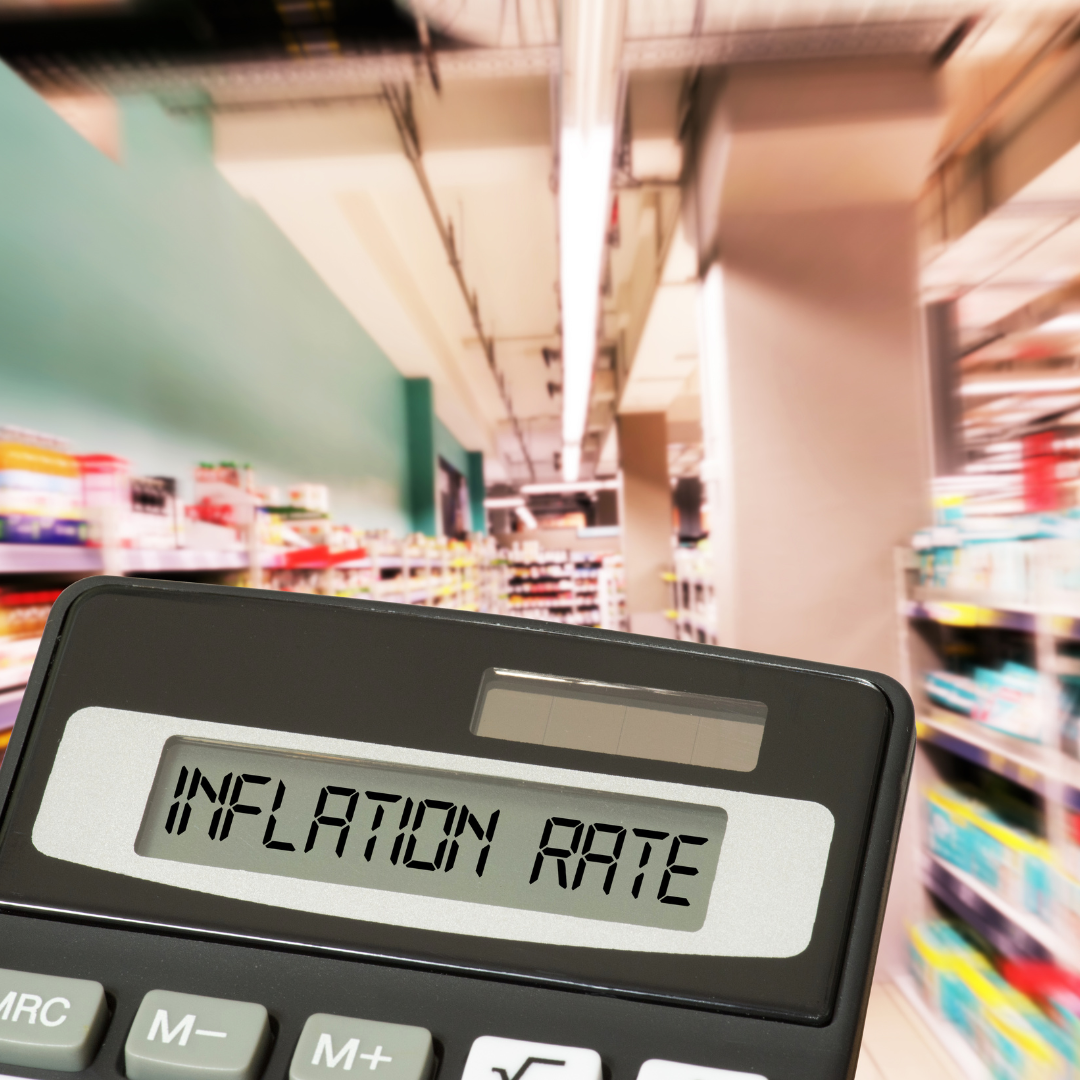How does Inflation Affect your finances? ??
Inflation is an economic phenomenon that refers to the sustained increase in general prices for goods and services over a period of time. It has a major impact on your financial security, so it’s important to understand what inflation is and how it affects your wallet.
What is Inflation?
In short, inflation is the general increase in prices for goods and services over a period of time. It is calculated as the annual percentage change in a price index such as the Consumer Price Index (CPI). Inflation reduces the purchasing power of your money, meaning you can buy fewer goods and services with it. When prices rise due to inflation, your spending power decreases. It is important to understand how this affects your finances so that you can make appropriate decisions about your investments for the future.
How Does Inflation Affect You?
Inflation affects everyone differently and can have both positive and negative impacts on your personal finances. On the one hand, it reduces the purchasing power of your money, so you may feel a pinch when making regular purchases. On the other hand, when inflation rates are low, you might benefit by having more money available to save and putting those savings into investments that offer high returns. It is important to keep track of inflation rates in order to make smart financial decisions.
The Different Types of Inflation
Inflation is generally divided into two main types: demand-pull inflation, which occurs when prices of goods and services increase due to excess demand in the market, and cost-push inflation, which occurs when increased production costs lead to higher prices. Cost-push inflation can be caused by increases in the cost of labor or raw materials, while demand-pull inflation can result from higher consumer spending.
Strategies to Combat the Impact of Inflation
There are several strategies you can use to reduce the impact of inflation on your finances. One strategy is to invest in stocks, mutual funds, or real estate, as these investments allow you to maintain purchasing power over time. Additionally, budgeting for inflationary periods and protecting yourself with insurance policies can help ensure that you are prepared for any potential financial losses due to rising prices.
Tips for Saving Money Amid Inflation
Saving money in times of rising inflation can be difficult but it’s not impossible. We recommend shopping for lower-cost items, setting aside money in an emergency fund, and making long-term investments. When searching for items, compare prices at different stores or online vendors to find the best deals. Additionally, create a plan for your savings and automate deposits into a savings account whenever possible. Lastly, you may want to consider investing in stocks or real estate to help protect your purchasing power over time.
How does inflation affect you the homeowner?
From a real estate perspective, inflation can impact the property market in a range of ways. For existing homeowners, inflation is a positive development. Property values typically appreciate over periods of time. The greater the demand, the more property is worth. In inflationary times, fewer new residential and other commercial and industrial construction plans can be realised. This is due to the rising costs of construction and all the related expenses involved. The most obvious benefit is that with housing supply low and demand high, the value of your home could rise with the inflation rate. This of course can make it a great time to sell, but it also means that your overall financial portfolio increases in value.

What about the property investor?
The same positive effect of increased inflation would be felt in the rental market. So an investor in additional properties could find their rental income increasing and therefore they could find themselves paying off a property that is appreciating in value beyond the rate of inflation. However – a word of caution – this strategy is not advised for speculative investors with short-term goals of buying and selling for quick profits.
As we find ourselves in uncertain economic times with the rate of inflation increasing, one thing is certain is that buying property in the right price range, in a well-sought-after location with great amenities and accessibility is one way of combating some of the adverse effects of a high inflationary environment.
1.The CPI
The CPI is a measure that examines the average prices of a basket of goods and services that the consumer needs. CPI is calculated by taking price changes for each item in a basket of goods and then averaging them based on their relative weight in the whole basket. The prices in consideration are the retail prices of each item, as available for purchase by the consumer. Changes in the CPI are used to assess price changes associated with the cost of living, making it one of the most frequently used statistics for identifying periods of inflation.
2. A short history of inflation in South Africa.
The inflation rate for consumer prices in South Africa moved – over the past 61 years – between -0.7% and 18.7%. For 2021, an inflation rate of 4.6% was calculated. During the period from 1960 to 2021, the average inflation rate was 7.9% per year. In February 2023, the year-over-year inflation rate was 7.3%.
This includes energy (+9.7%) and food (+13.5%).
3. Causes of Inflation
An increase in the supply of money is the root of inflation, though this can play out through different mechanisms in the economy. A government can increase a country’s money supply by different methods but in each instance, the money ends up losing its purchasing power. The mechanisms by which your money can lose its purchasing power are dealt with briefly below:
Increased demand.
An increase in the supply of money and credit increases the demand for goods and services. If this demand outstrips the ability of the economy to produce the goods and services demanded the result is a rapid increase in prices.
Increased production costs
As the costs of goods and services increase so do the costs of the production of the goods and other related economic activities. A simple example is if the demand for houses rises so does the price of accommodation. The building supply chains will be under pressure to produce more building materials which will result in a rise in the cost of building homes.
Increase in demand for increased wages.
As inflation bites into consumers’ budgets an unintended result could be an increase in demand for pay rises to cope not only with the immediately increased costs but also with future inflationary price rises.
4. Why has Inflation risen so rapidly over the past few years?
Firstly the triple effects of the causes of inflation stated above worked together to force inflation to rise in many countries all around the world including South Africa. Then add in the Covid pandemic which disrupted the normal economic processes and required governments to increase unemployment benefits and supply aid to help businesses survive the lockdowns. South Africa, like the rest of the world, is still struggling to get back to pre-covid levels of goods and services. Then come the economic sanctions and trade restrictions brought on by the invasion of the Ukraine. So another cycle of food price rises and a general slowing down of the world’s economic processes. Political instability anywhere in the world can result in rapid inflation anywhere in the world.
5. Inflation can be construed as either a good or a bad thing.
Inflation … the Pros
- Leads to the higher resale value of assets
- Optimum levels of inflation encourage spending
Inflation … the Cons
- Buyers have to pay more for products and services
- Impose higher prices on economy
- Drives some prices up first and others later


